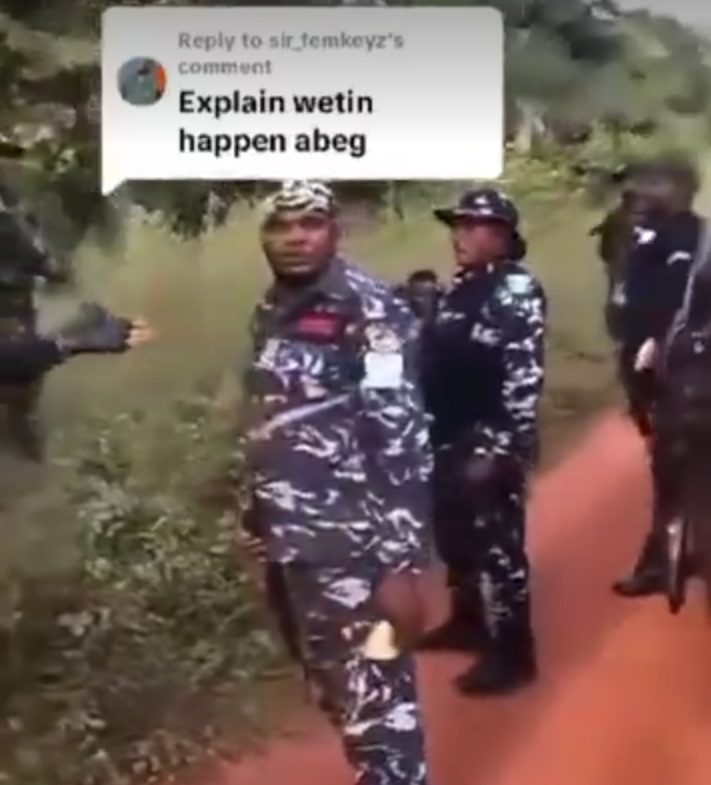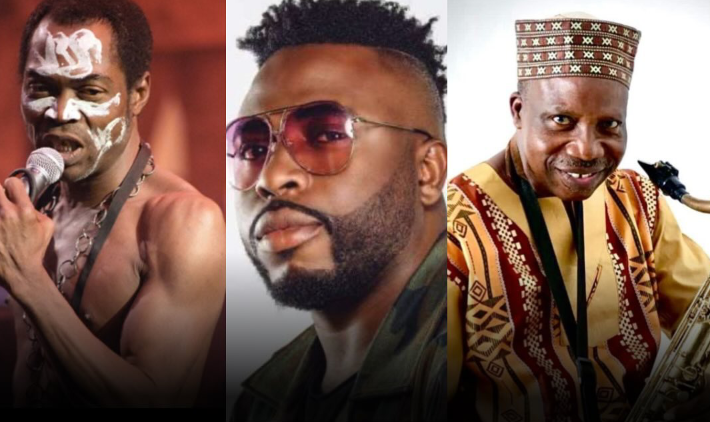
Soldiers Confront Police in Shocking Power Clash After Alleged Illegal Arrest
In a dramatic scene that has since dominated conversations across social media and offline circles, a group of police officers allegedly found themselves on the receiving end of military authority after reportedly carrying out an illegal arrest. What began as a routine day for residents in the area quickly escalated
In a dramatic scene that has since dominated conversations across social media and offline circles, a group of police officers allegedly found themselves on the receiving end of military authority after reportedly carrying out an illegal arrest. What began as a routine day for residents in the area quickly escalated into a tense showdown between two of the country’s most powerful security institutions, leaving bystanders stunned and raising questions about abuse of power and inter-agency conduct.
According to eyewitness accounts circulating online, the police officers had arrested a man under circumstances many described as suspicious and unwarranted. The details of the man’s alleged offense remain unclear, but what became immediately noticeable was the lack of protocol in the arrest, which triggered suspicion from those who witnessed the incident. Some residents claimed the man appeared confused and distressed, insisting he had done nothing wrong. Others reported that the officers acted in a manner inconsistent with standard arrest procedures, suggesting that the entire operation may have lacked proper authorization.
The story took a sharp turn when military personnel arrived at the scene. Their sudden appearance raised even more questions. It remains uncertain whether they were alerted by concerned residents, stumbled upon the event, or had prior intelligence that something unusual was going on. What is undeniable, however, is the swift assertiveness with which they took control of the situation. Witnesses said the soldiers wasted no time interrogating the officers, demanding clear explanations for the arrest and scrutinizing every aspect of what had transpired moments earlier.
At first, the police officers reportedly attempted to defend their actions, insisting that the arrest was legitimate. But the soldiers—standing firm and visibly unimpressed—pressed further, demanding the officers produce proper documentation or justification. When it became evident that the police team could not provide satisfactory answers, the tension heightened dramatically.
In a moment that many observers described as both shocking and symbolic, the soldiers allegedly ordered the officers to hand over their rifle magazines. The gesture, though simple, carried immense weight. In military and law enforcement settings, disarming an officer—even partially—is a clear indicator of loss of authority or a disciplinary action. It was a scene that left onlookers speechless. Some whispered in disbelief, some recorded from a distance, while others tried to make sense of how the situation had spiraled so drastically.
Videos and reports that surfaced online showed snippets of the confrontation, although none capture the full picture. In the clips shared, the soldiers appear stern and in control, while the officers seem caught off guard, unsure of how to respond to the humiliation unfolding before them. For many, the incident was more than just a clash of uniforms—it represented a deeper problem long whispered about within the Nigerian security system: the breakdown of discipline, communication, and respect among agencies tasked with protecting citizens.
As the confrontation unfolded, the man who was arrested reportedly remained nearby, watching as the officers who detained him were being disciplined by the military. Some residents claimed the soldiers asked the officers pointed questions about why the man was being held and who authorized the arrest. When the officers failed to provide clear answers, the military personnel allegedly ordered them to release him immediately. Those present said the man wasted no time walking away, visibly shaken but grateful.
What followed was an unusual scene—soldiers leading the officers aside, reportedly continuing their interrogation away from the public eye. The decision to remove the conversation from the street may have been an attempt to de-escalate the spectacle, but by then, the moment had already been etched into public memory. The confrontation has since ignited a heated debate about how far tensions between security agencies have grown in recent years.
Many Nigerians took to social media to express their shock, with some praising the military for stepping in to stop what appeared to be an unjust arrest, while others worried about what such inter-agency confrontations mean for national security. A few argued that the soldiers’ actions, while justified in spirit, may have been excessive, noting that conflict between security agencies could embolden criminals and weaken public trust.
Questions are now being asked about whether internal disciplinary measures will follow. The police hierarchy has often emphasized the importance of professionalism and accountability, and this incident is likely to raise internal concerns about how officers conduct arrests, especially in public spaces. Likewise, the military may also be compelled to explain what prompted them to intervene with such force and authority. While collaboration between agencies is essential, public confrontations can create more complications than solutions.
Residents in the area where the incident occurred say the event has sparked conversations about police behavior. Some expressed relief that the military intervened, suggesting that abuse of power by police officers has become too common. Others urged caution, noting that inter-agency rivalry is dangerous and could escalate beyond control if not addressed properly.
Legal analysts have also weighed in, reminding the public that while the military may intervene in certain extraordinary situations, policing matters are generally meant to be handled by the police themselves. The overlap of roles, especially when not coordinated, can create confusion, power struggles, and jeopardize due process.
For now, the identities of the officers involved remain undisclosed, and there has been no official statement from either the police force or the military regarding the matter. Both institutions may still be assessing the situation internally, possibly preparing statements to calm public curiosity and speculation. But as the silence stretches, the public continues to draw its own conclusions, fueled by viral videos, eyewitness testimonies, and past experiences.
This incident, dramatic as it was, exposes the urgent need for better training, clearer mandates, and stronger inter-agency communication. When security agencies responsible for the safety of citizens end up publicly clashing over procedures, the system’s cracks become impossible to ignore. Nigerians are now watching closely, hoping for accountability, reforms, and a reassurance that those entrusted with power understand the responsibility that comes with it.
Whether this confrontation becomes a turning point or a forgotten spectacle will depend on what happens next. But one thing is certain: the image of soldiers ordering police officers to surrender their magazines will not be forgotten anytime soon, and the conversation it sparked is far from over.
https://x.com/dammiedammie35/status/1989265065418301602?t=k1gk7_p32BP_zpo7U3sbQw&s=08
Share this post
Related Posts

Gifted, Married, Unbothered: Omotola Jalade Ekeinde Sparks Debate on Love, Trust, and Women’s Power in Nollywood
Nollywood legend Omotola Jalade Ekeinde has once again ignited conversation across social media and entertainment...

Celebrity Designer Veekee James Declares: “I’m My Husband’s Only Best Friend for Life”
In a bold and heartfelt revelation, celebrity designer Veekee James has opened up about her...

“I’ll Teach You History”: Samklef’s Claim That Fela Stole Afrobeat Sparks a Cultural Firestorm
A fresh cultural debate has erupted on Nigerian social media after music producer and singer...